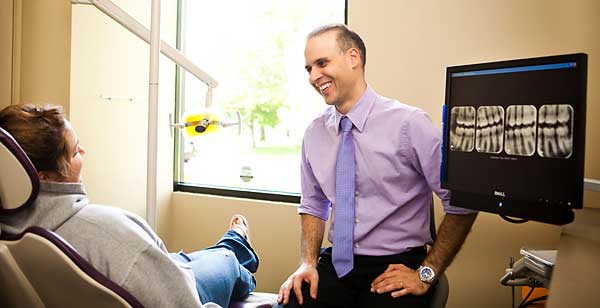All dental offices will experience sluggish case acceptance from time to time. Does your practice need a boost? Well there’s one thing that you can do right now that will help you increase case acceptance by 10-to-20 percent. That’s right, you can start doing this right away and it won’t cost you a dime. It’s something that your parents or spouse probably asked — even begged — you to do a million times, but it’s rarely done dental case presentations. The one thing that will increase case acceptance is listening.
Why you need to listen up
The Levin Group recently monitored more than 100 case presentations by clients and found that in more than 80 percent of the presentations, the doctor or treatment coordinator did over 90 percent of the talking. As the doctor or coordinator talked, patients would sit quietly taking in information without completely following or understanding the presentation. They then became shell-shocked by the fee and rejected treatment, leaving the doctor or coordinator wondering what went wrong. If they had only listened to the patient they might know.
In order for the doctor or coordinator to listen, they must get patients to talk; the best way to get patients talking is to stop and ask questions. A wonderful rule of thumb is to not speak for more than three or four minutes without asking a clarifying question — questions that motivate patients to formulate their own inquiries. I encourage you to pepper your presentation with questions like these:
- Does everything make sense?
- Do you have any questions about anything that I’ve explained so far?
- I know this can feel overwhelming, so I want to make sure I’m explaining it to you in a way that is easy to follow (this is really a question).
- How do you feel so far about what you are hearing?
Stop regularly during your case presentation and give the patient a chance to catch up. Sometimes you need to review what you’ve already told them. Sometimes they’ve already tuned you out and it’s important to go back and summarize what has been discussed and ask clarifying questions.
Why is listening so important?
Picture going to a car dealership with the intention of buying a car and not getting the chance to ask any questions. Yes, you’ve probably received some great information from the salesperson on fuel economy or performance, but you haven’t gotten the chance to find out about all of the things that concern you. You’ll go home without fully understanding all of your options and decide that you can probably manage to get through one more year in your old clunker. Or, you’ll do your own research and visit another dealer and make your decision with them. If only the first car dealer had listened to your concerns, a deal might have been worked out that both of you were happy with.
It’s the same with your patients: when they aren’t given the chance to ask questions, they’ll listen politely and smile but there’s no way they will accept treatment. During your presentation they’ll consider timing, scheduling and financial factors based on their own guesses. Then they’ll decide treatment isn’t possible without knowing that by working with you, it probably is.
By stopping periodically during your presentation to calmly and carefully listen to a patient’s questions or objections, you’ll include the patient, clarify the situation and get the chance to repeat treatment benefits. This helps patients become comfortable and increase their level of trust.







